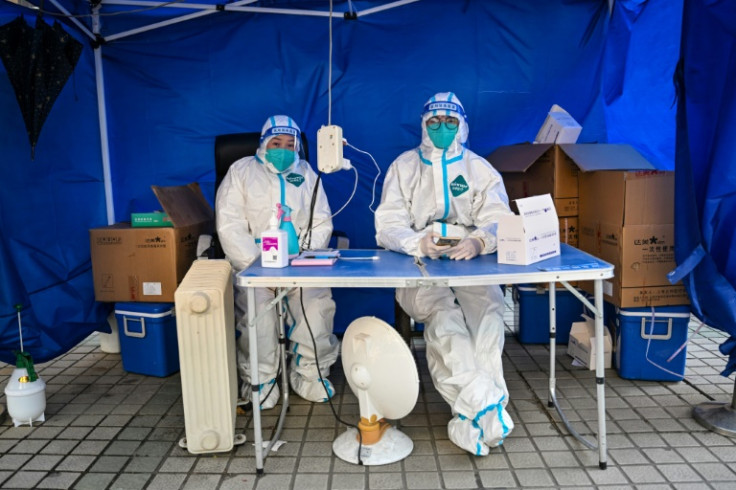Chinese scientists claim Covid-19 originated from humans
The Chinese scientists also rejected the latest reports which claimed that the virus came from racoon dogs.

Several theories have come up about the origin of the deadly novel coronavirus. Some of them claim that it leaked from a Chinese lab while others claim that its source was wildlife at China's Wuhan wet market. A Chinese scientist has debunked these theories claiming that the virus may have originated from humans.
The claims have been made by Tong Yigang, a scientist at Beijing University of Chemical Technology. He said that the viral samples taken from the Huanan Seafood Market in Wuhan were "almost identical" to those of patients infected with the coronavirus. And that this probably means that the virus may have originated from humans.
The latest claims negate the theories about Wuhan being the origin of the deadly virus. Wuhan was the epicentre of Covid-19 outbreak at the beginning of the pandemic. It was being claimed that the virus came from animal to human infection at Wuhan's wet market.
A wet market is essentially a collection of open-air stalls where the farmers or vendors sell fresh seafood, meat, fruits, and vegetables. Some of the wet markets in China also sell live animals, including chickens, fish, and shellfish. They also sometimes sell wild animals and slaughter them on site.
Tong made the revelations at a press conference by the Chinese State Council and explained how he reached the conclusion.
Over 1,300 environmental and frozen animal samples were collected from the infamous Wuhan market during the period between January 2020 and March 2020, said Tong. He added that the scientists then isolated three strains of the virus from the environmental samples. A subsequent analysis of the samples suggested that the virus may have, in fact, come from humans, per CNN.
The Chinese scientists also rejected the latest reports which claimed that the virus came from racoon dogs. The latest claims about the origin of Covid-19 comes in the backdrop of the World Health Organization (WHO) slamming China for not cooperating with the probe initiated to find answers.
The WHO has been looking for the source of the outbreak since the beginning of the pandemic. A team of experts even visited Wuhan in the early days of the pandemic to carry out a probe.
In June last year, it called for new studies into the matter, including audits of labs located close to Wuhan. A recent report published in the journal Nature claims that the investigation has been shelved.
"The politics across the world of this really hampered progress on understanding the origins," Dr. Maria Van Kerkhove, an epidemiologist at the WHO, told the journal. "We really, really want to be able to work with our colleagues there. It is really a deep frustration," she said.
However, a WHO spokesperson later dismissed the claims stating that the investigation has not been abandoned. But they have expressed frustration over the lack of openness from Chinese authorities when it came to sharing data.
WHO says Chinese regime has information about COVID’s origin, press to share data
— Spotlight on China (@spotlightoncn) April 9, 2023
The World Health Organization (WHO) chief said on Thursday, April 6, that he was sure that the Chinese regime had far more data about the origins of Covid-19, pressing Beijing to share all relevant… pic.twitter.com/iLhMF4KRiN
"We have repeatedly and publicly said that the origin needs investigating and China must provide access and info for this to happen — and if this doesn't happen, efforts to understand the origins will remain rather stymied," said WHO spokesperson Tarik Jašarević.
The organisation's chief, Tedros Adhanom Ghebreyesus, has publicly asked China to provide data from the early days of the pandemic. The health agency believes that China has far more data than it shares.
"Without full access to the information that China has... all hypotheses are on the table," WHO chief Tedros Adhanom Ghebreyesus said in Geneva.
The speculations and rumours around the origin of the virus even led to a war of words between US and Chinese leaders. Former US president Donald Trump had openly claimed that the pathogen came from a lab in Wuhan, the Chinese city where the virus was first detected.
The lab-leak theory was a favourite of Trump during the 2020 campaign, as he attempted to both downplay the severity of the pandemic and blame his enemies abroad. However, the World Health Organisation categorically dismissed the claims.
© Copyright IBTimes 2025. All rights reserved.





















